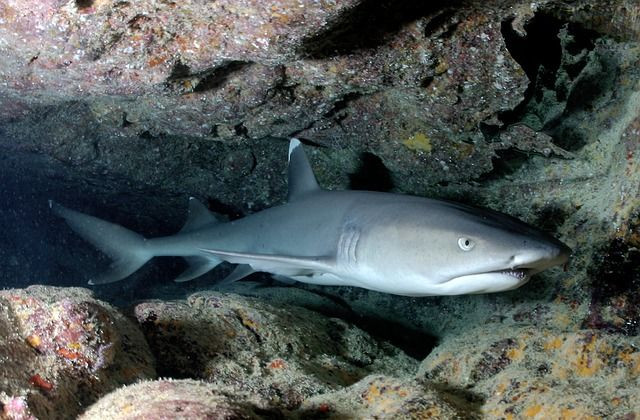Rare Two-Headed Shark Found By Fisherman, Photos Go Viral
A rare baby shark with two heads was discovered by a fisherman off Palghar coast in the Indian state of Maharashtra last week.
The fisherman, identified as Nitin Patil, threw the six-inch shark back into the sea after taking a few photos of it.
"We do not eat such small fish, especially sharks, so I thought it was strange but decided to throw it anyway," Patil told local daily the Hindustan Times.
He then showed the photos to other fishermen who told him that it was a rare anomaly. The fishermen in turn shared the photos with researchers from the Indian Council for Agricultural Research - Central Marine Fisheries Research Institute (ICAR-CMFRI).
two-headed #shark (dicephalic) recorded first time from #Maharashtra marine water. fisherman nitin patil from palghar, satpati found dicephalic Spadenose shark.
— Akshay Mandavkar🌿 (@akshay_journo) October 12, 2020
report - https://t.co/pq8zB94HPS@vidyathreya @SharkAdvocates @TheSharkStanley @akhileshkv7 @IUCNShark @anishandheria pic.twitter.com/fCIDXPd802
The researchers confirmed that the discovery was a very rare documentation.
"Our records show that double-headed sharks are very rarely reported along the Indian coast. This species appears to be the embryo of the spadenose shark (Scoliodon laticaudus) from the Carcharhinidae family or a sharpnose shark (Rhizoprionodon species). Both are viviparous and are common in Maharashtra waters," said Dr. Akhilesh KV, scientist at ICAR-CMFRI, told the newspaper.
He went on to say that the heads of the shark were joined behind the gills.
"These are also called dicephaly. This phenomenon is reported in several animal species including sharks, possibly due to mutation or any other embryonic malformation, disorders, and these are very rare reports. Similar cases are reported elsewhere outside the northern Indian Ocean. These materials should be preserved out of scientific interest," he added.
However, another researcher told the newspaper that the species have a very low survival rate.
"There are hardly any documentations of this species as adults. This finding is purely an aberration. We cannot attribute it to any exact reason. It is regularly seen for snake species or conjoined or Siamese twins in humans. In maximum cases, they do not survive beyond the juvenile stage, but it definitely opens up an avenue for much needed research," E Vivekanandan, emeritus scientist, ICAR-CMFRI told the newspaper.

© Copyright IBTimes 2024. All rights reserved.





















